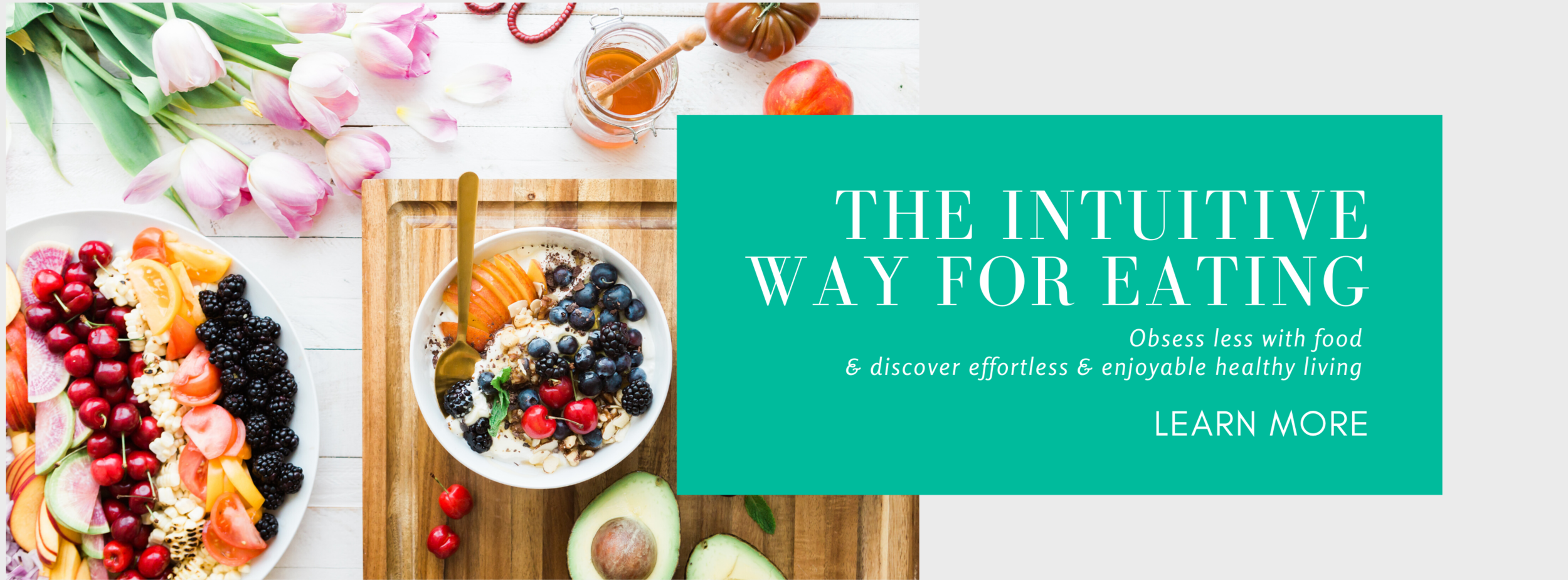Why Calories, Weight and Instagram Likes Don't Matter
I've spent too much of my life counting calories, weight and Instagram likes ... and you know what? Enough is enough!
It seems like we are constantly turning back to these things for approval or love for ourselves, "love". We, as Millennials, have become so accustomed to instant gratification that we find it challenging to find approval and love for ourselves within ourselves. We need to know that we're liked, wanted, desired – maybe even worth retweeting or sharing. And I'm just as guilty! I'm by no means saying I have this all figured out, but I think it's worth starting a conversation about so maybe we can step outside of our little universe we're living in and find some humour in how wild it is that we give all of these things – çalories, weight and instagram likes – so much meaning.
Let's start off by noting one thing that these 3 things have in common. Can you guess? They all measure up to numbers (I knew math wasn't a good idea from the minute I started learning long division). All of these things can be counted or quantified and ultimately we use whatever high number (in terms of Instagram likes) or low number (in terms of calories and weight) to determine our self-worth. If we happen to fall short or exceed any of the expectations as to where we should land numerically, watch out self-worth.
Having retired from calorie counting and the scale for several years now, I can hardly believe I once allowed those things to dictate my worth. If you're still there, fear not – you are not silly or crazy for thinking that way. You can blame tabloid magazines and media for that one! In order to really disconnect from the meaning that we give these three things, we need to:
1) Break up with them
2) Find alternative means of "measuring" our self-worth
Here's what we can do instead:
1. Instead of focusing on calories, focus on INGREDIENTS!
Sure, there's truth to the "calories out > calories in" mentality when it comes to weight loss. But there's also truth to the fact that our body utilizes calories in various ways. A healthy fat source such as coconut oil is comprised of medium-chain fatty acids that our body uses for energy, whereas fat derived from 100-calorie snack packs, while it may not seem like much, is typically derived from poor sources like canola oil, which our body would be more prone to storing as fat.
It can be a scary thing to let go of the calorie obsession. I know from experience that it isn't easy, but it's quite possibly one of the best things I did to repair my relationship with food and start looking at food for the nutrition and health benefits it provided my body than the short sighted goal which was weight loss (which never happened after tinkering around this for several years, by the way).
If we counted calories, foods like nuts and seeds would be terrible for us, when in actuality, these healthy fat and protein powered foods are crucial for our brain health which is considered the fattiest organ in the body, made up of 60% fat.
Other things food-derived fats are essential for include:
Energy
Reducing inflammation
Maintaining the skin's moisture content
Contributing to shiny healthy hair
Balancing hormones
Providing a cushion for our internal organs
Fat-soluble vitamin absorption (for vitamins A, D, E and K)
When we focus on the calories, we miss out on vital nutrients. We can't just look at meeting our daily caloric requirement, but our nutritional and micronutrient requirement instead. When I focused on calories, I was barely surviving off of nutrient-poor food including 100-calorie snack packs, diet coke, low-carb bread and aspartame-filled yogurt. Here I was thinking I was being super healthy and yet I was putting next to no nutrition into my body! No wonder I felt totally out of control when it came to food, was always hungry (which inevitbaly led to binges), had serious cravings and could never lose weight.
When I finally just started eating real ass food (aka fruits and vegetables that come from the earth, along with grains and animal protein), I felt nourished. My cravings went away. I started to see food as my friend instead of my enemy. I lost body fat. I finally felt good in my skin!
And here I was thinking the answer was in the battle against calories all this time. Boy, was I wrong!
2. Instead of focusing on your weight, focus on HOW YOU FEEL!
I was working with a client a while ago who kept saying she just wanted to stop worrying about her weight and what the scale said, yet she would step on the scale every single morning. There wasn't a day she got off the scale where she was actually happy with the number she saw, despite whether she lost weight (which was her goal).The solution? Break up with the scale.
I challenged her to stop weighing herself for a whole week. When that was too daunting, I proposed every other day instead. Because the truth is, until you stop stepping on that scale every day (which ultimately dictates your self-worth and how you're going to feel for the day), you will never be able to feel good in your own skin.
Instead, use more tangible and realistic measures. Ask yourself:
How do your clothes fit?
How do you feel naked in your skin?
Do you actually feel healthy?
How are your energy levels?
Is your skin showing you balanced or imbalanced health?
Are you experiencing any negative symptoms of any kind?
What do your poops look like? (P.S: They should look like Type 3-4 according to The Bristol Stool Chart)
These are ultimately much more realistic and accurate indications of your status of health than a number on the scale will tell you.
3. Instead of focusing on Instagram Likes, focus on REAL LIFE!
I am taking a page out of my own book on this one because again, I haven't conquered this challenge 100% yet (especially when Instagram is a beloved hobby and an integral part of my career). Seriously, it has got to the point where I downloaded an app (... as if I need to be more connected to technology) called Moments which tells you exactly what your mobile device usage looks like, including how many times you've picked up your phone in a day, how long you scrolled for when you did that and the total amount of time you scrolled for each day.
I'm almost embarrassed to tell you that the most time I spent on my phone in a day so far since I started using the app is 4 hours and 52 minutes while picking up my phone 67 times in the day. Now that includes about 1.5 hours worth of phone talking time (likely mixed between boyfriend time and some work time) but still – that's almost 5 hours out of my day that I was on my phone. Let's not forget that there are 24 hours in a day and 8 of those hours I'm sleeping which leaves us at 16 hours and since it was a Friday I was technically working from home for 8 of those hours which means of the 8 hours I had free for myself, I used 5 hours of them on my phone, likely to post on social media, do some mindless scrolling and check who's liked my photos, while leaving 3 hours to be somewhat present.
All that to say, I am far from perfect, but by starting the conversation and making ourselves aware of our habits, we pave the path to releasing these habits that don't serve us.
To be fair, this isn't entirely our fault – it's actually our brain's. I mean, I guess in a way it is our fault because our brain is in our head and body, but all of those neurotransmitters have a mind of their own, I tell ya (pun totally intended). The reason why we feel so attached to notifications or even a "like" is because of the neurotransmitter, dopamine, which is responsible for regulating our mood and is considered our "reward centre". It's also the same chemical that is triggered when people do drugs, hence it's addictive quality.
Dopamine actually encourages us to want, desire, seek out and search. But it keeps us in this feedback loop as it drives us to search for something that triggers our reward centre and make us feel good.
As a result, when we find it, we release more dopamine which addictively keeps us hunting for more things that trigger that dopamine release (i.e. Instagram likes!)Ah, science. That's enough of you for today! So while we may not be able to change our brain chemistry, we can find healthier solutions that make us feel good, like going for a run, hanging out and laughing with people that lift us up or attending community events.
But remember ...
In order to find love and worthiness, it must come from within. If we can't find that from ourselves, we'll be searching for it forever in outside sources, be it relationships or superficial nonsense, and we will more than likely never actually be satisfied as a result.
These are the types of things that are at the core of emotional eating and until we break through these things, it will be nearly next to impossible to have a healthy relationship with food, ourselves, our body and to sustain a healthy lifestyle.



